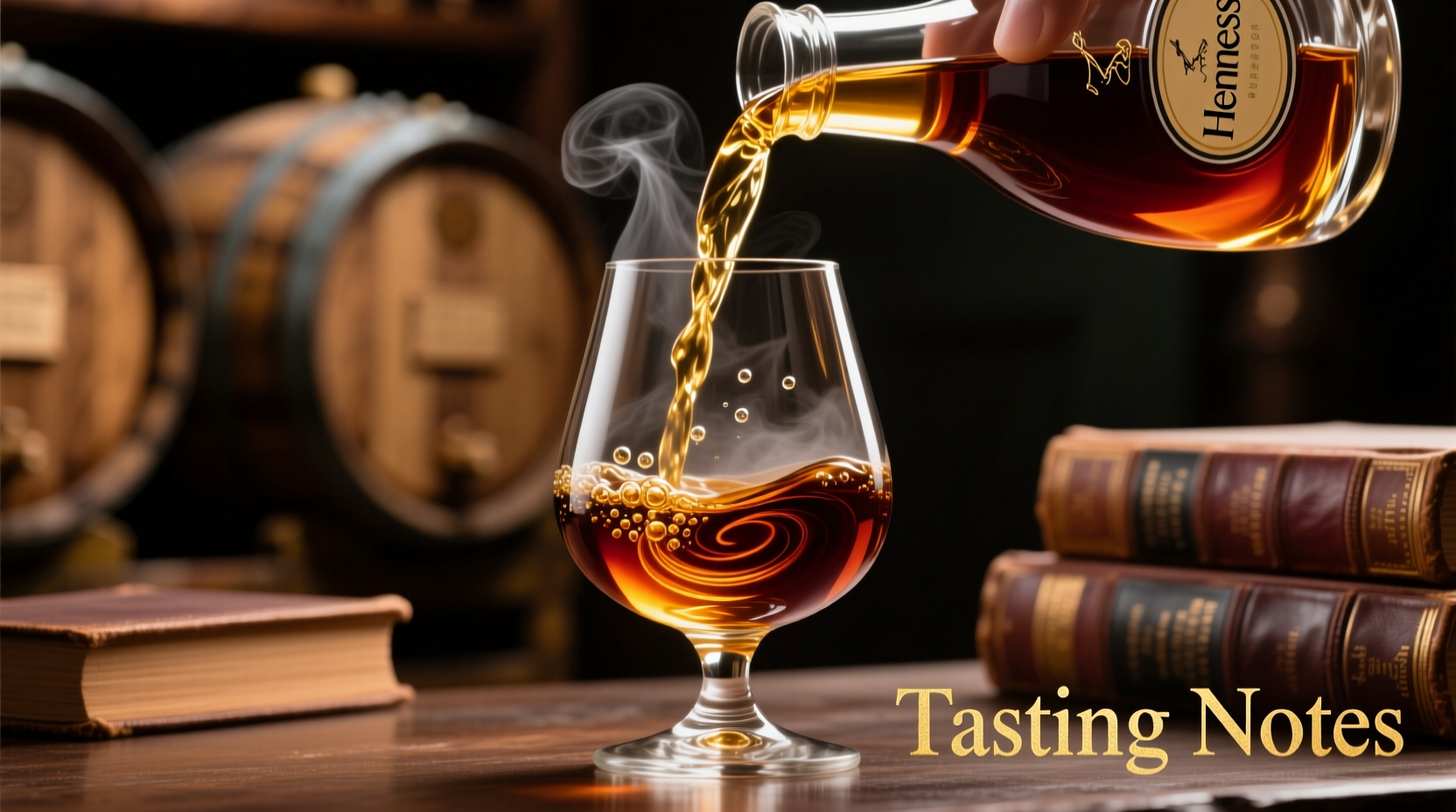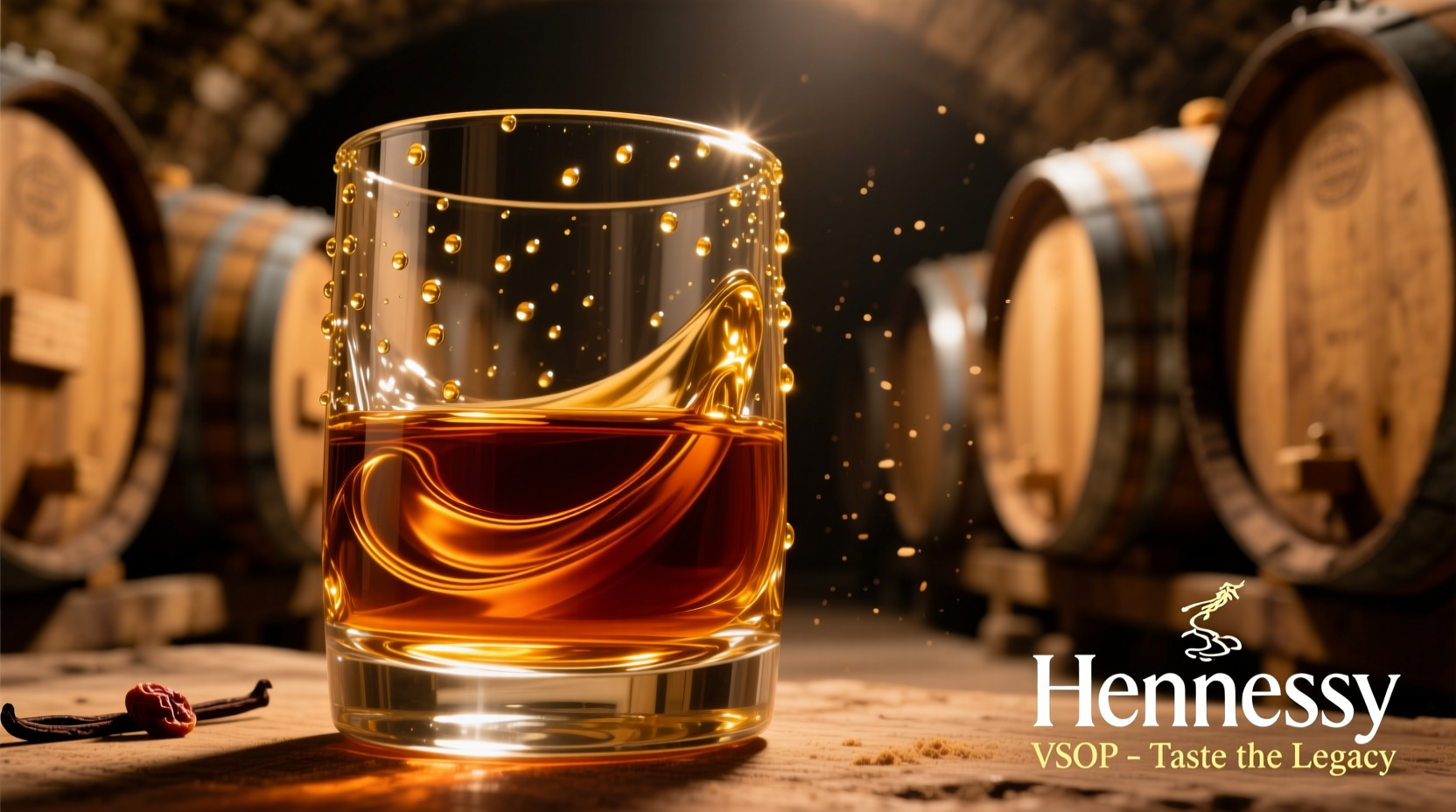If you've ever wondered what makes Hennessy stand out in the world of cognac, you're not alone. Understanding its distinctive flavor profile helps both newcomers and connoisseurs appreciate this iconic spirit. This guide breaks down exactly what to expect when you take that first sip, how different expressions vary, and what factors influence Hennessy's complex taste experience.
Your Hennessy Tasting Journey: From First Sip to Finish
When you pour a glass of Hennessy, you're experiencing centuries of French distillation expertise. The taste unfolds in distinct stages that reveal the craftsmanship behind this premium cognac.
First Impressions: The Aroma Profile
Before tasting, swirl your glass gently and bring it to your nose. Hennessy's aromatic profile immediately presents:
- Citrus notes (particularly in younger expressions like VS)
- Vanilla and oak from barrel aging
- Subtle floral hints
- Faint spice undertones
The aroma provides your first clue about what to expect on the palate. Proper nosing technique enhances your ability to detect these nuanced notes.

Palate Experience: What Hennessy Actually Tastes Like
When you take that first sip of Hennessy, you'll notice how the flavor develops through distinct phases:
| Phase | Flavor Characteristics | Duration |
|---|---|---|
| Initial Contact | Bright citrus, subtle sweetness, mild warmth | 0-5 seconds |
| Mid-Palate | Vanilla, oak, dried fruit (raisins, apricot), gentle spice | 5-15 seconds |
| Finish | Warmth spreading through chest, lingering notes of toasted nuts, leather (in premium expressions) | 15+ seconds |
How Different Hennessy Expressions Compare
Not all Hennessy tastes the same. The aging process significantly impacts the flavor profile across their product range:
| Expression | Minimum Aging | Distinct Flavor Notes | Best Served |
|---|---|---|---|
| Hennessy VS | 2 years | Citrus, floral notes, light oak | Chilled or in cocktails |
| Hennessy VSOP | 4 years | Dried fruit, vanilla, subtle spice | Room temperature |
| Hennessy XO | 10+ years | Dark chocolate, leather, toasted nuts, complex spice | Neat in snifter |
Factors That Influence Hennessy's Taste Profile
Several elements affect how Hennessy tastes when you drink it:
Temperature Matters
Serving temperature dramatically impacts your tasting experience. Hennessy experts at the Cognac region's Maison Hennessy recommend:
- VS: Slightly chilled (12-15°C/54-59°F) preserves brighter notes
- VSOP: Room temperature (18-20°C/64-68°F) allows complexity to shine
- XO: Slightly warmed (20-22°C/68-72°F) releases deeper aromatics
Serving Hennessy too cold masks subtle flavors, while excessive warmth amplifies alcohol burn.
Proper Glassware Selection
The shape of your glass concentrates aromas differently:
- Snifters: Best for premium expressions (XO, Paradis) - concentrates complex aromas
- Tulip glasses: Ideal for VSOP - balances aroma concentration and accessibility
- Old-fashioned glasses: Suitable for VS in cocktails - allows mixing while preserving some character
How Hennessy Compares to Other Premium Cognacs
While all cognacs share certain characteristics, Hennessy has a distinctive profile compared to competitors:
| Characteristic | Hennessy | Remy Martin | Courvoisier |
|---|---|---|---|
| Primary Flavor Profile | Balanced fruit and oak | Richer fruit notes | Lighter, floral profile |
| Finish | Medium-long with spice warmth | Longer, creamier finish | Shorter, cleaner finish |
| Best Expression for Newcomers | VSOP | 1738 Accord Royal | VSOP |
This comparison comes from blind tasting evaluations conducted by the Cognac Bureau, which maintains strict quality standards for all cognac producers in the region (bnic.fr).
How to Properly Taste Hennessy Like a Professional
Maximize your Hennessy tasting experience with these professional techniques:
Step-by-Step Tasting Method
- Pour 1-1.5 oz into an appropriate glass
- Observe the color (pale gold for VS, deep amber for XO)
- Swirl gently and note the "legs" or viscosity
- Nose the glass without touching your nose to it
- Take a small sip and let it coat your palate
- Breathe in slightly through pursed lips while the spirit is in your mouth
- Swallow and note the finish duration and characteristics
Avoid Common Tasting Mistakes
- Don't add ice to premium expressions (VSOP and above) - it numbs subtle flavors
- Avoid using inappropriate glassware that disperses aromas
- Don't rush the tasting process - allow 15-20 minutes per expression
- Avoid strong perfumes or recently eating pungent foods
Understanding Hennessy's Flavor Development Over Time
Hennessy's master blenders carefully monitor the aging process, which transforms the spirit's flavor profile:
- First 2 years: Spirit absorbs primary oak characteristics, develops initial vanilla notes
- Years 2-5: Tannins mellow, fruit notes become more pronounced
- Years 5-10: Complex spice notes develop, texture becomes silkier
- 10+ years: Deep leather, tobacco, and dark chocolate notes emerge
This aging timeline follows the regulations set by the Bureau National Interprofessionnel du Cognac (BNIC), which governs all cognac production (bnic.fr).
Practical Tasting Tips for Different Occasions
How you enjoy Hennessy depends on the context:
For Casual Enjoyment
Hennessy VS makes an excellent introduction to cognac. Try it:
- Slightly chilled with a single large ice cube
- With a splash of soda water and lemon twist
- In classic cocktails like the Sidecar or Vieux Carré
For Serious Tasting Sessions
When evaluating premium expressions like XO:
- Use a proper snifter glass
- Serve at precisely 20°C (68°F)
- Allow 30 minutes for the spirit to breathe after pouring
- Take small sips with water palate cleansers between
Common Misconceptions About Hennessy's Flavor
Several myths persist about what Hennessy tastes like:
- Myth: All Hennessy tastes strongly of alcohol
Reality: Properly aged expressions have a smooth warmth rather than harsh alcohol burn - Myth: Hennessy tastes the same regardless of expression
Reality: VS, VSOP, and XO have dramatically different flavor profiles due to aging - Myth: Cognac should always be served extremely warm
Reality: Optimal temperature varies by expression - too warm diminishes subtle notes
Developing Your Palate for Cognac Appreciation
Building your ability to discern Hennessy's complex flavors takes practice:
- Start with younger expressions (VS) before moving to premium varieties
- Keep a tasting journal noting specific flavors you detect
- Compare different brands side-by-side in blind tastings
- Attend professional tasting events when possible
- Learn the standard flavor wheel used by spirits professionals
Remember that individual palates vary - what you taste might differ slightly from others based on your unique sensory perception.
Conclusion: Appreciating Hennessy's Complex Flavor Profile
Understanding what Hennessy tastes like involves recognizing its layered flavor profile that evolves from the initial aroma through the finish. Whether you're enjoying the vibrant citrus notes of Hennessy VS or the deep complexity of XO, each expression offers a distinct tasting experience rooted in French distillation tradition. By serving it properly and approaching tasting methodically, you'll discover why Hennessy has maintained its reputation as one of the world's most recognized cognacs.











 浙公网安备
33010002000092号
浙公网安备
33010002000092号 浙B2-20120091-4
浙B2-20120091-4